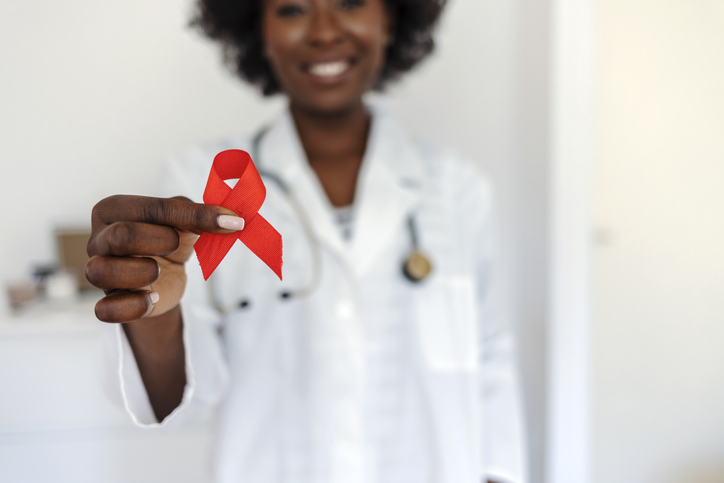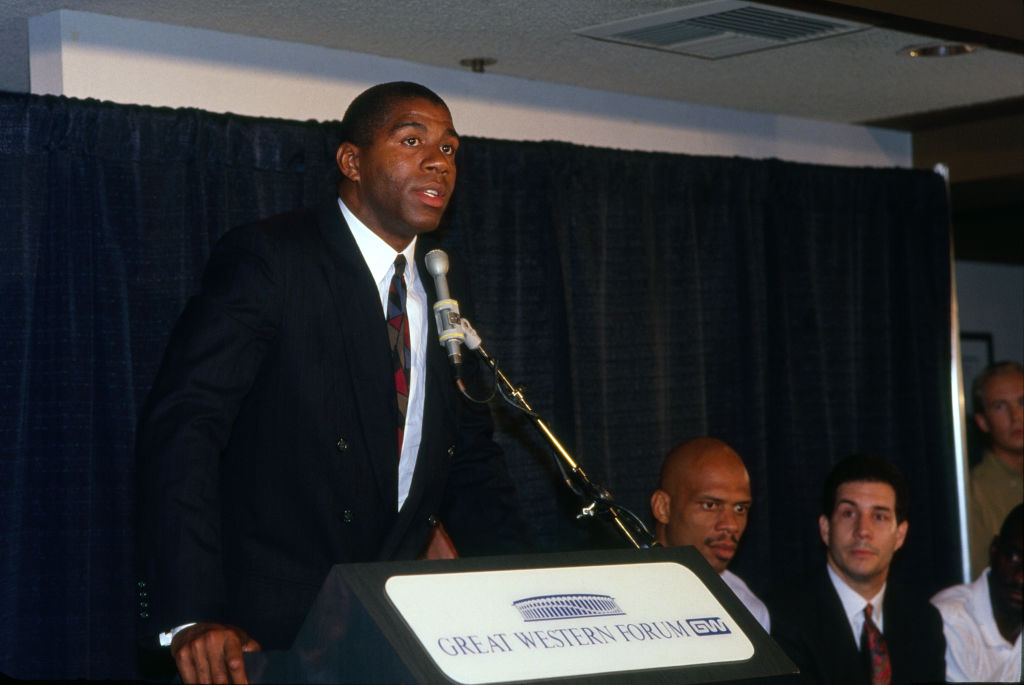
Source: Jelena Stanojkovic / Getty
The Black Health 365 podcast dives into the current HIV/AIDS crisis within the Black community, particularly in the South.
The American South accounted for 51% of HIV diagnoses, the highest percentage in the U.S. by region, according to the latest CDC data. As of 2020, Black Americans accounted for the highest rate of HIV diagnoses in nearly every U.S. region except for the West. The racial disparity was particularly pronounced in the South.
Hosts Britt Daniels and Jackie Paige welcome Anna DeShawn and Deirdre Speaks to the podcast. DeShawn is the host of the Black HIV in the South: How Did We Get Here? podcast on Urban One, and Speaks is an HIV/AIDS activist and co-founder of Ending Criminalization of HIV and Overincarceration in Virginia (ECHO VA).
It’s important to understand how we got here, and what can be done to address this health crisis. “The South experiences the greatest burden of HIV and deaths than any U.S. region. It lags behind in the quality of HIV prevention, services and care,” says Daniels.
The stigma around HIV/AIDS still looms—as Speaks says, it remains “in a taboo space.” These discussions can often be difficult to broach in the Black community in particular, due to medical mistrust, stigma, discrimination, and a disparity in access to sexual health education and drugs like PrEP. “Black people need to care about the rates of HIV because it directly impacts you. It impacts somebody that you know, and you don’t even know it,” DeShawn says.
The stigma around HIV/AIDS hinders progress by perpetuating feelings of shame in those living with HIV/AIDS. “Dirty, unclean, unworthy of the same love of our counterparts that are not living with HIV, unvaluable, unlovable, those are just a few,” says Speaks. “We have to accept people—where they are, who they are. And then talk about it.”
Even the medical community is often tight-lipped about discussing HIV/AIDS with patients, based on the group’s lived experience. “We have historically separated HIV from everything else, when it needs to be part of the holistic health situation. If I’m talking about STIs, I’m talking about HIV at the same exact time,” DeShawn says. “If we’re getting tested for one, we should be getting tested for it all. But because of the stigma—you did that to yourself, you should have had protected sex—all the finger pointing that happened in the early 80s and the 90s, we set it apart. We made it a blame thing. You are to blame for this.”
Doctors should be able to discuss sexual health with patients, without judgment, and help create an individualized sexual health plan. “There are so many ways to protect yourself out here, the conversations just aren’t [being] had,” says DeShawn.
For those navigating life with HIV/AIDS, it’s even more essential to maintain the right to experience pleasure despite the stigma and shame associated with HIV/AIDS. “I’m still trying to learn my sexy back because of the internalized stigma of being dirty and not being worthy of experiencing pleasure. And that is something else that we’re exploring, is pleasure living with or without HIV,” says Speaks. “Sexual health is a part of our overall well being.”
If you want to learn more about destigmatizing and decriminalizing HIV/AIDS, DeShawn and Speaks provide a list of organizations to check out below:
Southern AIDS Coalition
SERO Project
Center for HIV Law and Policy
Positive Women’s Network
Positive People Network
AIDS United
THRIVE SS
ECHO VA
SEE ALSO:
Episode 2 Of ‘Black HIV In The South’ Podcast Addresses Early Years Of Epidemic
Episode 3 Of ‘Black HIV In The South’ Podcast Addresses The Church’s Response to HIV/AIDS
The post Black Health 365: Our HIV Problem appeared first on NewsOne.

